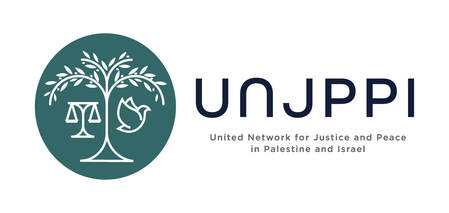On the Necessity of Equivocation

by Ryan Dueck on July 15, 2014
Source: Rumblings - a blog by Ryan Dueck
Editor's Note: There is excellent discussion/comments on this topic on the original blog.
A few days ago, the Prime Minster of Canada had this to say in an official statement about the latest eruption of violence in Israel/Palestine:
Canada is unequivocally behind Israel. We support its right to defend itself, by itself, against these terror attacks, and urge Hamas to immediately cease their indiscriminate attacks on innocent Israeli civilians.
There is much that could be said about this statement.
We could probe Harper’s use of phrases like “terror attack” and question why this combination of words is used in reference to some groups and not others. We could question why our Prime Minister chose not to urge the cessation of attacks on innocent Palestinian civilians. We could perform a cursory calculation of loss of life in this region over the last few days, weeks, months, and years, and wonder about the wildly disproportionate numbers of Palestinians killed/wounded vs. Israelis. We could hold this statement about Israel’s implicit merits up to the recent treatment of a Canadian citizen and MCC peace and justice worker who was refused re-entry into Israel and barred for ten years from returning.
We could even dig a bit deeper and examine some of the geopolitical complexities that have defined the region for long decades or ask about the realities that ordinary Palestinians are forced to live with each and every day of their lives—realities like encroachment upon their (meagre) lands, intermittent electricity and water supply, relentless harassment at security checkpoints, and a countless other daily indignities that steadily erode hope and humanity. We could also muse about the increasingly muscular Canada that Stephen Harper has sought to establish in recent years and about how far our nation has drifted from its historical reputation of neutrality and peacekeeping.
But others have written and will continue to write about these things. What struck me when I read our Prime Minister’s statement was the first sentence:
Canada is unequivocally behind Israel.
Actually, my concern was narrower still, zeroing in on one word. Unequivocally. What could it possibly mean to say that Canada—a nation of many different ethnicities, religions, political persuasions, opinions and viewpoints—is, as a singular nation, unequivocallybehind Israel?
A quick consultation of my dictionary yielded the following definitions for the word “unequivocal”:
This, it seems to me, is a truly frightening thing to say, whether about the conflict in Israel/Palestine, about other conflicts around the world, or about pretty much anything else in life. The truth, of course, is that pretty much every situation where people and groups disagree or find themselves in conflict with one another is complicated and multifaceted and requires careful consideration of multiple factors before pronouncing judgment (if judgment is pronounced at all).
Not only is offering unequivocal support naïve and shortsighted (and lazy), it may even be downright immoral. We have a duty as citizens, as thinkers, as human beings to affirm those behaviours or positions that can be affirmed, and to critique and condemn those behaviours and positions for which this is the appropriate response. No organization deserves unequivocal support. No political party, no church, no advocacy group, no business, no whatever.
Indeed, it is precisely this kind of black/white, either/or binary thinking that often gets us into huge amounts of trouble. We end up offering either a blank cheque or unthinking rejection to people and groups instead of saying things like,
Regardless of how difficult/uncomfortable this approach might be, it is one that I am convinced we must constantly be seeking to cultivate, in our politics and theology, in our churches, in our educational institutions and community groups, even in our everyday relationships with our spouses and our kids. The world needs more equivocators. Or, if that term is deemed too negative, the world needs more people willing to probe beyond the easiest and most convenient answers, in the search for what is good, true, and just for all.
Source: Rumblings - a blog by Ryan Dueck
Editor's Note: There is excellent discussion/comments on this topic on the original blog.
A few days ago, the Prime Minster of Canada had this to say in an official statement about the latest eruption of violence in Israel/Palestine:
Canada is unequivocally behind Israel. We support its right to defend itself, by itself, against these terror attacks, and urge Hamas to immediately cease their indiscriminate attacks on innocent Israeli civilians.
There is much that could be said about this statement.
We could probe Harper’s use of phrases like “terror attack” and question why this combination of words is used in reference to some groups and not others. We could question why our Prime Minister chose not to urge the cessation of attacks on innocent Palestinian civilians. We could perform a cursory calculation of loss of life in this region over the last few days, weeks, months, and years, and wonder about the wildly disproportionate numbers of Palestinians killed/wounded vs. Israelis. We could hold this statement about Israel’s implicit merits up to the recent treatment of a Canadian citizen and MCC peace and justice worker who was refused re-entry into Israel and barred for ten years from returning.
We could even dig a bit deeper and examine some of the geopolitical complexities that have defined the region for long decades or ask about the realities that ordinary Palestinians are forced to live with each and every day of their lives—realities like encroachment upon their (meagre) lands, intermittent electricity and water supply, relentless harassment at security checkpoints, and a countless other daily indignities that steadily erode hope and humanity. We could also muse about the increasingly muscular Canada that Stephen Harper has sought to establish in recent years and about how far our nation has drifted from its historical reputation of neutrality and peacekeeping.
But others have written and will continue to write about these things. What struck me when I read our Prime Minister’s statement was the first sentence:
Canada is unequivocally behind Israel.
Actually, my concern was narrower still, zeroing in on one word. Unequivocally. What could it possibly mean to say that Canada—a nation of many different ethnicities, religions, political persuasions, opinions and viewpoints—is, as a singular nation, unequivocallybehind Israel?
A quick consultation of my dictionary yielded the following definitions for the word “unequivocal”:
- unambiguous; clear; having only one possible meaning or interpretation
- absolute; unqualified; not subject to conditions or exceptions
This, it seems to me, is a truly frightening thing to say, whether about the conflict in Israel/Palestine, about other conflicts around the world, or about pretty much anything else in life. The truth, of course, is that pretty much every situation where people and groups disagree or find themselves in conflict with one another is complicated and multifaceted and requires careful consideration of multiple factors before pronouncing judgment (if judgment is pronounced at all).
Not only is offering unequivocal support naïve and shortsighted (and lazy), it may even be downright immoral. We have a duty as citizens, as thinkers, as human beings to affirm those behaviours or positions that can be affirmed, and to critique and condemn those behaviours and positions for which this is the appropriate response. No organization deserves unequivocal support. No political party, no church, no advocacy group, no business, no whatever.
Indeed, it is precisely this kind of black/white, either/or binary thinking that often gets us into huge amounts of trouble. We end up offering either a blank cheque or unthinking rejection to people and groups instead of saying things like,
- “Well I agree with this person when they share their views about x, but not when they presume to speak about y, which they don’t know nearly as much about”
- “Yes, I generally disagree with this party’s politics, but they make a really important point in this instance”
- “I realize that we have supported this nation in the past, but they have begun to act in ways that my conscience no longer permits me to justify”
- “Even though I generally find myself in a different camp than so and so theologically, I find myself in agreement with them in this case and feel compelled to say so”
Regardless of how difficult/uncomfortable this approach might be, it is one that I am convinced we must constantly be seeking to cultivate, in our politics and theology, in our churches, in our educational institutions and community groups, even in our everyday relationships with our spouses and our kids. The world needs more equivocators. Or, if that term is deemed too negative, the world needs more people willing to probe beyond the easiest and most convenient answers, in the search for what is good, true, and just for all.
